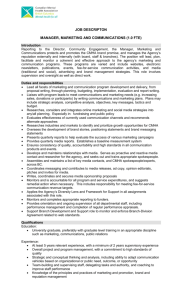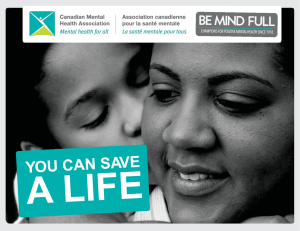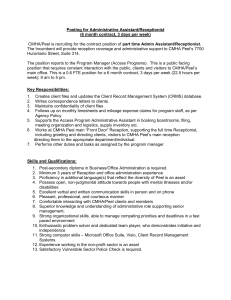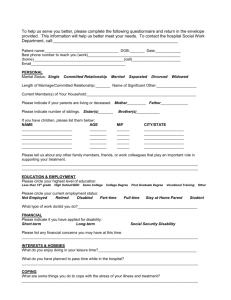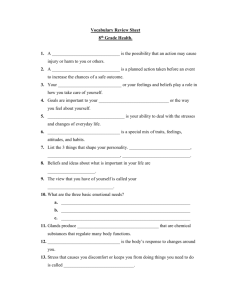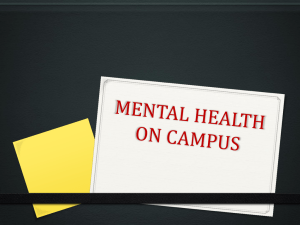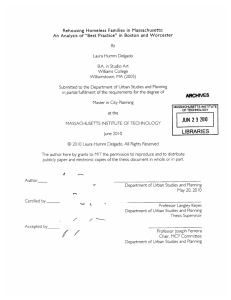Fact Sheet: Youth Mental Health
advertisement
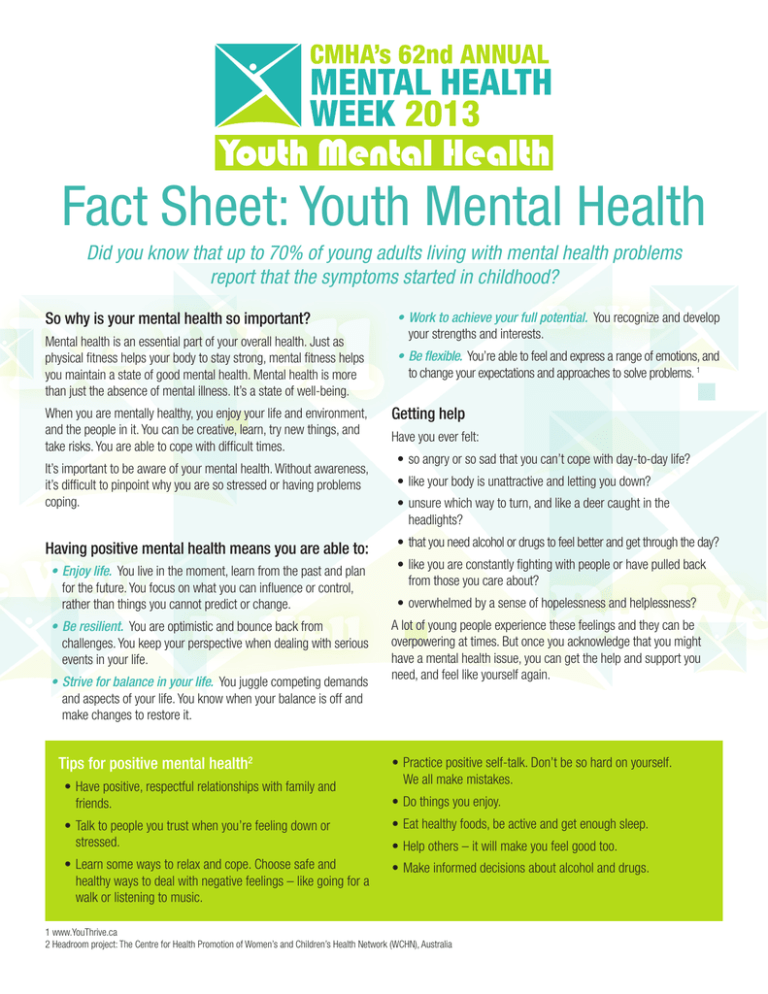
Fact Sheet: Youth Mental Health Did you know that up to 70% of young adults living with mental health problems report that the symptoms started in childhood? So why is your mental health so important? Mental health is an essential part of your overall health. Just as physical fitness helps your body to stay strong, mental fitness helps you maintain a state of good mental health. Mental health is more than just the absence of mental illness. It’s a state of well-being. When you are mentally healthy, you enjoy your life and environment, and the people in it. You can be creative, learn, try new things, and take risks. You are able to cope with difficult times. It’s important to be aware of your mental health. Without awareness, it’s difficult to pinpoint why you are so stressed or having problems coping. Having positive mental health means you are able to: •Enjoy life. You live in the moment, learn from the past and plan for the future. You focus on what you can influence or control, rather than things you cannot predict or change. •Be resilient. You are optimistic and bounce back from challenges. You keep your perspective when dealing with serious events in your life. •Strive for balance in your life. You juggle competing demands and aspects of your life. You know when your balance is off and make changes to restore it. Tips for positive mental health2 •Have positive, respectful relationships with family and friends. •Talk to people you trust when you’re feeling down or stressed. •Learn some ways to relax and cope. Choose safe and healthy ways to deal with negative feelings – like going for a walk or listening to music. •Work to achieve your full potential. You recognize and develop your strengths and interests. • Be flexible. You’re able to feel and express a range of emotions, and to change your expectations and approaches to solve problems. 1 Getting help Have you ever felt: •so angry or so sad that you can’t cope with day-to-day life? •like your body is unattractive and letting you down? •unsure which way to turn, and like a deer caught in the headlights? • that you need alcohol or drugs to feel better and get through the day? •like you are constantly fighting with people or have pulled back from those you care about? •overwhelmed by a sense of hopelessness and helplessness? A lot of young people experience these feelings and they can be overpowering at times. But once you acknowledge that you might have a mental health issue, you can get the help and support you need, and feel like yourself again. •Practice positive self-talk. Don’t be so hard on yourself. We all make mistakes. •Do things you enjoy. •Eat healthy foods, be active and get enough sleep. •Help others – it will make you feel good too. •Make informed decisions about alcohol and drugs. 1 www.YouThrive.ca 2 Headroom project: The Centre for Health Promotion of Women’s and Children’s Health Network (WCHN), Australia Finding your support system For parents/caregivers: How they and others can The first steps are always the toughest, but knowing where to look for support your mental health help is a good start. Here are some places where you can begin: •Internet: Go online and find out about reputable, confidential mental health resources. Many provincial governments or community agencies across Canada offer anonymous telephone or web chat services. •Library: Borrow books, videos and audio books on mental wellbeing and mental illness. The journey from child to adult can be complex and challenging. Young people often feel tremendous pressure to succeed at school, at home and in social groups. At the same time, they may lack the life experience to know that difficult situations will not last forever. Parents/caregivers and other adult role models can help young people manage their mental health and navigate this time of dramatic change by: •Developing positive relationships: Taking the time to learn •Family and friends: Share your feelings with family and friends, about a young person’s individual and let them be part of your interests and sharing in activities team. If you belong to a faith How CMHA and other mental health can help build bonds that can be group, talk with someone you organizations can help conducive to open communication. can confide in. Learn how to take care of your mental health. As a young person develops their •Educational events: Attend identity, non-judgmental and Get the facts about mental illness. workshops and education supportive relationships are critical, Find help for yourself or others. sessions hosted in community particularly in difficult times. centres, agencies, schools, CMHA can help. We have a remarkable team of • Engaging youth in developing colleges and universities. more than 10,000 volunteers and staff across leadership: Young people have •School supports: Talk to a Canada providing vital services and support to strengths that can be encouraged school counselor, teacher or the through opportunities to problemwell over half a million Canadians every year. principal of your school. solve, make decisions and organize For more information on how to maintain •Community resources: Check activities and events. Providing youth your mental health, to find Mental Health Week out community mental health a directing role can help them gain clinics or contact mental health events in your community or to donate to new skills and celebrate successes. organizations. CMHA, go to mentalhealthweek.ca. • Giving emotional support: •Family doctor: Talk to your Listening to a young person Or contact your local CMHA, or any other family doctor. He/she is a great should be active, not reactive. Ask community mental health agency/organization, resource and can link you to questions to help them sort through to obtain information on available supports and other professionals, if needed. their feelings, rather than reacting services close to you. immediately with your own thoughts. This can create a safe space for a young person to explore their emotions and thoughts. Watch for difficulties in coping and signs that additional support may be needed. (See sidebar below.) Signs and symptoms of possible youth mental health problems: •Abuse of drugs and/or alcohol. •Changes in school performance, falling grades. •Inability to cope with daily problems and activities. •Changes in sleeping and/or eating habits. • Modeling self-care and help-seeking when a personal problem arises: Parents/caregivers can reflect on ways in which they can reduce their own stress and find support for their own mental health. These may include participating in recreation activities, learning a new skill or sharing household tasks. Developing supportive relationships and seeking help from other adults can set a good example for young people. •Excessive complaints of physical problems. • Missing a lot of school, stealing, damaging property or problems with the law. •Low self-esteem and negative body image. •Prolonged feelings of unhappiness and thoughts of selfharm or death. •Uncontrollable outbursts of anger. facebook.com/CANMentalHealth twitter.com/CMHA_NTL
